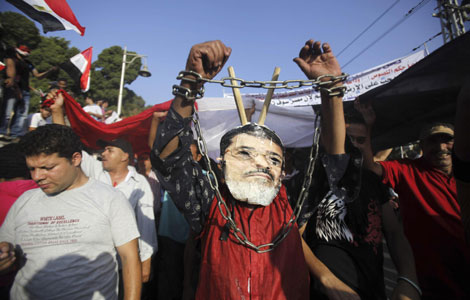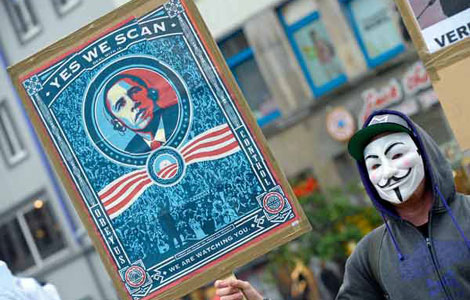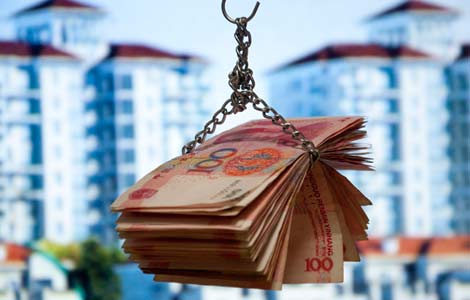Venezuela's weaker bolivar hits global firms
Updated: 2013-07-01 08:02
By Bloomberg News in New York (China Daily)
|
||||||||
US companies from Procter & Gamble Co to Pfizer Inc are facing a hit on their earnings as Venezuela's government limits access to dollars and the currency fell further.
BlackBerry said on Friday currency restrictions in the Latin American country contributed to a surprise loss in the quarter ending June 1. Venezuela's government has limited access to dollars because of currency controls during the past decade, making it difficult for companies with foreign headquarters to repatriate cash at the official exchange rate.
The losses are likely to continue as analysts surveyed by Bloomberg estimate the bolivar will fall an additional 16 percent against the dollar by the end of 2014.
"That's the challenge of emerging markets - when it's good, it's great, when it gets bad, it can get really bad - and we're certainly seeing that in Venezuela," Clorox Chief Financial Officer Steve Robb said. Clorox, based in Oakland, California, recorded a $3 million loss in the three months ending March 31 from the devaluation.
Venezuela has devalued its currency five times in the past nine years, most recently when it weakened the exchange rate by 32 percent to 6.3 bolivars per dollar on Feb 8. The changes have increased pressure on President Nicolas Maduro's government to accelerate the approval of foreign currency for imports after the upheaval left behind by Hugo Chavez, who died of cancer in March, sparked the Western Hemisphere's fastest surge in consumer prices, leaving Venezuelans with shortages of everything from toilet paper to soap.
The country will look to weaken the bolivar this year without making an official devaluation of the currency, as it tries to boost revenue and narrow the budget deficit, according to a survey of analysts. South America's biggest crude oil producer will step back from formally devaluing the bolivar for the sixth time in nine years, said eight out of 11 analysts surveyed by Bloomberg.
Consumer-products companies with a large presence in the market are recording losses. Cincinnati-based P&G said in February it would record a charge of as much as $275 million to revalue its Venezuelan balance sheet after the devaluation that month. Avon Products Inc, the beauty products manufacturer, saw revenue in Venezuela decline 15 percent in part because of the devaluation in the first quarter, the company said in an April filing.
Large US pharmaceutical companies that sell their drugs in Venezuela are divided on the long-term effect of the currency on earnings. Merck & Co in February said it had $140 million of exchange losses in its Venezuelan business in the first quarter.
That reduced earnings by 5 cents a share without changing the company's full-year outlook.
Pfizer reported an $80 million loss from the devaluation and said it expects the currency to have an ongoing effect on earnings.
(China Daily USA 07/01/2013 page13)

 Gay pride parade around the world
Gay pride parade around the world
 Four dead in Egypt clashes, scores wounded
Four dead in Egypt clashes, scores wounded
 New NSA spying allegations rile European allies
New NSA spying allegations rile European allies
 Foreign minister makes ASEAN debut as tensions flare
Foreign minister makes ASEAN debut as tensions flare
 Yao stresses transparency in charity
Yao stresses transparency in charity
 NYC's gay pride march for celebration
NYC's gay pride march for celebration
 Massive debt plagues local gov't
Massive debt plagues local gov't
 Looking abroad for better investment
Looking abroad for better investment
Most Viewed
Editor's Picks

|

|

|

|

|

|
Today's Top News
Chinese, US deals will grow this year
US updates duties on Chinese honey
Looking abroad for better investment
Mixed outlook for EV makers in China and US
Obama to announce new power initiative for Africa
China's June manufacturing PMI falls to 50.1
Longer term for visas to attract talent
Putin signs anti-gay measures into law
US Weekly

|

|






